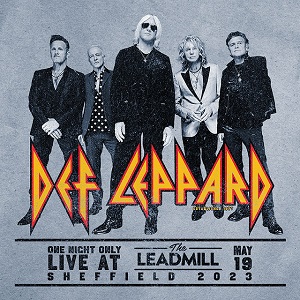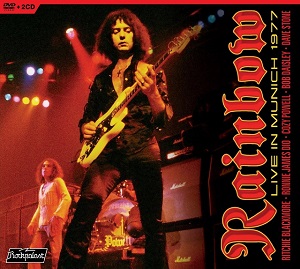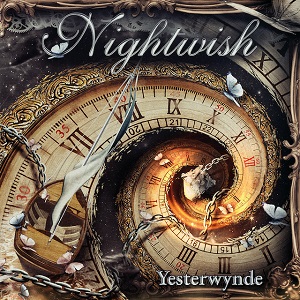The Crossfire Review Returns! ENSLAVED's In Times "Is Their Absolute Finest"
February 26, 2015, 9 years ago

Yes, you read it correct. The famous BW&BK; Crossfire has returned! Normally this is regulated to scribes with opposing opinions, but in those rare cases where we all stand on one side of the fence as it were, there is no need to quibble, just relish the moment of greatness. And that is the case regarding BraveWords’ love-affair with Enslaved. Two writers go metalhead-to-metalhead! The album in question is In Times, the thirteenth studio album from Norwegian extreme metallers, Enslaved, which will be released on March 6th via Nuclear Blast.

David Perri - 9/10
The Enslaved identity is a complicated landscape of divided loyalties, one that intersects - and collides, not always gently - at Oslo/Bergen ’91 (with all the baggage that carries) and prog rock (another avenue full of baggage, if of an entirely different sort). But what happens when those prominent divides attract different fans, with different worldviews, that want entirely different things? Ivar Bjornson, one of Enslaved’s founding members, wondered as much in Until The Light Takes Us, the 2008 documentary that explored the roots - many bloody - of Norway’s early ‘90s black metal scene. “Some people only like a band’s first demo,” Bjornson said, explaining one of extreme metal’s unfortunate preeminent truths. “And I have questions.”
Questions, it seems, that Enslaved has been contemplating since its first major leap into the stylistic unknown on 2000’s immense Mardraum – Beyond The Within. In the 15 years since that album, Enslaved has lept even further, and into even deeper chasms, with listeners constantly challenged in significant new ways. It happened in 2006 with the Rush-hangs-out-in-Bergen of Isa and then again through 2012's thoughts like hammers that is RIITIIR. And in between the two, each other Enslaved record has brought its own set of Gordian knots.
In the context of that kind of catalogue, In Times looks to untangle the intersected loyalties and place them side by side independently, something Enslaved has never done before. While In Times possesses some of the most traditional black metal elements we’ve heard from Enslaved since the ‘90s, it also at times introduces itself as the group’s most straight-forward rock album, albeit in the cerebral way Enslaved has mastered. And while it seems intuitive to believe that a focus on component parts would create a disjointed whole, the opposite is true here: In Times is the most complete Enslaved album since Mardraum.
The key to that completion is Enslaved itself. This is no longer a band that “experiments”, quote unquote -- constant evolution is, simply and plainly, an integral part of this group’s (kathaarian) life code. It takes confidence to constantly expand the parameters of your expression and confidence is not lacking here, as In Times is a self-assured fascination street that sounds both organic and audacious, with true innovation as the by-product (will they print a t-shirt that says True Norwegian Innovators for this tour?). Case in point: “Nauthir Bleeding” and its complete defiance, the track suddenly breaking into smooth prog moments just as expectations dictate that frozen, second wave black metal blastbeats are about to arrive. It’s a jarring, and brilliant, trick, and it’s one Enslaved pulls off with ease.
If Enslaved is making this level of advancement seem easy, then where can the band go from here? Is direct and undeviating regression the only way forward? Or are there still hidden alleyways (or forests) Ivar and Grutle have yet to uncover? To ask these questions are to answer them, it seems.

Jason Deaville - 10/10
1962; The birth of the British Invasion begins, with the Beatles recording their first single 'Love Me Do', and the Rolling Stones making their debut at London's infamous Marquee Club. 1970; Black Sabbath releases their self-titled debut, which has since been credited with significantly influencing the development of heavy metal. 1973; English progressive rock pioneers Pink Floyd release their groundbreaking Dark Side Of The Moon, considered to be one of the greatest albums of all-time. 1982; British innovators Venom release their genre-defining album Black Metal, their lyrics and imagery later becoming a major influence on black metal. Last, but certainly not least, a virtually unknown band from the Bay Area, Metallica, releases their debut album Kill 'Em All, and go on to become one of the most commercially successful bands of all-time, selling over 110 million records worldwide.
It's surreal to think that the most significant events in modern music date as far back as half a century. In fact, so much time has passed that any attachment, outside of nostalgia, becomes lost in this murky haze of the space–time continuum. To think of it in less dizzying, metal-centric terms, let's look at it this way: more time has elapsed between this very moment and the debut of the sub-genre known as black metal (1982) than had elapsed between the beginning of the British Invasion (1962) and the birth of black metal. To clarify, the former equals exactly two decades, while the latter is over three decades. What this means is, black metal has existed longer than the time it actually took that early incarnation of rock 'n' roll to sprout its ever-darkening wings into what we now know as extreme metal.
When we further examine this era, the same few names come up time and again - names belonging to the leaders and innovators of each respective genre and sub-genre. Unlike the fertile fields of the 60s, 70s, and 80s, the last two decades (from '95 on) have seen very little in the way of innovation; and, what little innovation we've seen, is followed by ample stagnation. This is particularly true of extreme metal. Seemingly, everything has been done, with each successive release a regurgitation of the last.
So, where do we go from here? Is it even possible to recapture the majesty of the aforementioned bands? Will my generation, and the generations after me, have their very own Dark Side Of The Moon? With the continual commodification of music, more concerned about the maximization of profits over proficiency, it's certainly not looking good. Even within the realm of the very extreme there exists an affluence of vanity over creativity, with image-conscious, inverted cross-sporting-dude-bros attempting to out-accessorize each other.
Thankfully, there are a handful of bands attempting to reclaim the beauty and artistic innocence of those early days. If you've been paying any attention to the last dozen or so years, there is one band, more than any, that hints at pure musical artistry with each subsequent release. It should come as no surprise that this band began its life as a single, semi-frozen seed sprouting from the desolate and frigid alpine tundras of Norway. Those formative years were spent in an all-enveloping darkness, a coalescence of ambition, youthfulness, and ingenuity. The complete antithesis of their name, the members of Enslaved, like their Nordic brethren, forged a path all their own. Unlike the sub-genres of thrash and death metal, which by the early 90s had begun to exhaust itself, black metal had unearthed the fundamentals laid-down ten years earlier by Venom.
As the majority of Norwegian black metal bands swept clean the earth with their very own concoction of fire, ice, and corpsepaint, Enslaved chose the left hand path: a path blanketed in wisdom and indulgence. Traversing this colossal, mountainous passage through a dozen stunningly-classic albums, Enslaved have returned with an album, that, quite literally, will leave their contemporaries standing directionless and uninspired, staring up as the true warriors of Norwegian black metal claim their rightful throne atop its magnificent summit. To be fair, this album, entitled In Times, sees Enslaved now playing in an entirely different league than their Norwegian kinship. The opening track, "Thurisaz Dreaming", begins with a nod back to the beginning, furiously blasting to a hypnotic, dizzying tempo. It quickly moves into a booming, tremolo-accented, backbeat, replete with echoing chants which steeps the song in a viking war-filled atmosphere. Just as the break-neck pace becomes too much, the follow-up track, "Building With Fire", immediately kicks into a riff for the ages - a series of chord progressions that form to create a song that can stand tall, proud, against any song, of any genre, ever. No kidding. Its simplicity in construction, and execution, is absolute genius. As incredible as this all sounds, the next track, "One Thousand Years Of Rain", is beyond a doubt one of the greatest black metal songs ever penned. It is Enslaved's "Master Of Puppets", their "Paranoid", even their "Hallowed Be Thy Name". The riff that follows the ambient intro will be ingrained in your brain forever. The trade-off between Grutle's screams and Herbrand Larsen's clean vocals resonates in pitch-perfect harmony. This is Enslaved at their absolute finest. The album could end here, at track three, and we'd still be left with one of the best albums in two decades, but it doesn't. It continues on for another three songs in just the same fashion. Everything works, nothing feels forced, or out of place. Absolute perfection.
With In Times, Enslaved have become the future of this genre. We now have our generation's Dark Side Of The Moon. This time, though, the dark side has become pitch black, with brief, beautiful glimpses of the universe beyond.
(Slider photo by: Thor Broedreskift)











